Mastering Google Ads Keywords Search for Law Firms: A Roadmap to Online Success
Google Ads is a formidable tool that has redefined how law firms connect with potential clients and achieve online success. Google Ads offers a direct route to your target audience, a way to influence their decisions, and a platform to establish your authority in the legal sphere.
This guide will navigate the intricate terrain of Google Ads keyword search. We aim to provide a roadmap that educates and empowers your law firm to harness the full potential of Google Ads.
Let’s embark on this journey together as we uncover the essential steps and strategies to master Google Ads keywords search for your law firm’s online success.
Contents
Understanding Google Ads for Law Firms
Google Ads can help your law firm promote your services to an online audience. It functions on a pay-per-click (PPC) model, meaning you pay only when users click your ads. This cost-effective and results-oriented system allows your law firm to control your advertising spend while reaching potential clients.
Relevance to the Legal Industry:
Google Ads is pertinent to the legal industry for several reasons. In this digital age, the first point of contact between clients and law firms often occurs through online searches. Here’s why Google Ads is relevant to law firms:
1. Immediate Visibility
Google Ads can ensure your ads appear at the top of search pages when potential clients search for relevant legal queries or services. This immediate visibility sets the stage for potential clients to explore your offerings.
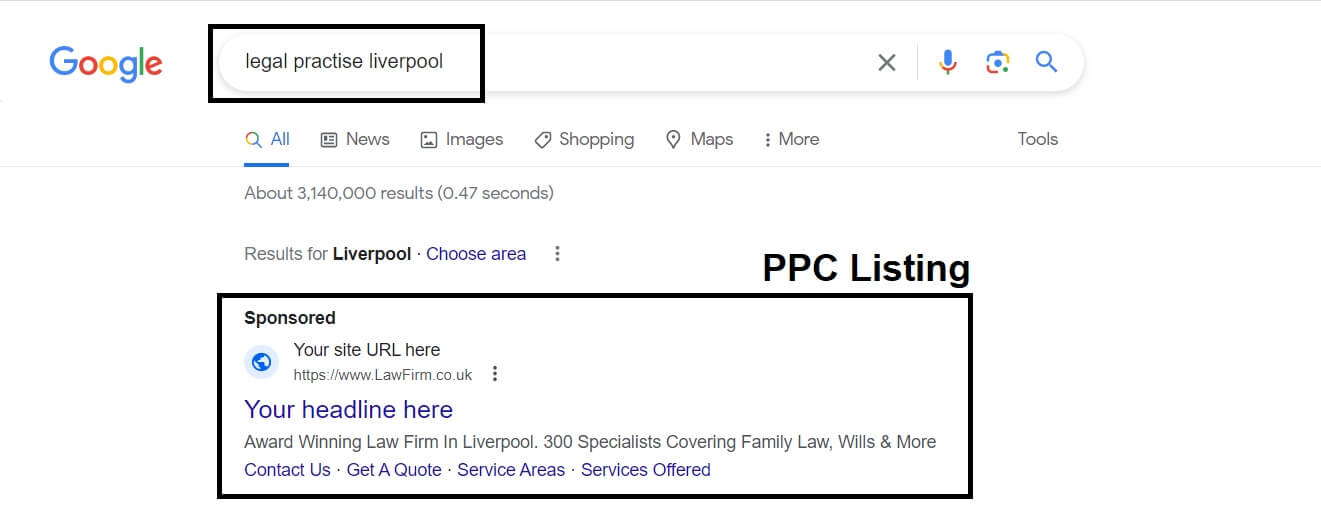
2. Precise Targeting
Google Ads enables you to target your ads based on specific keywords, geographic locations, and demographic criteria. This precision ensures that your message reaches the right audience.
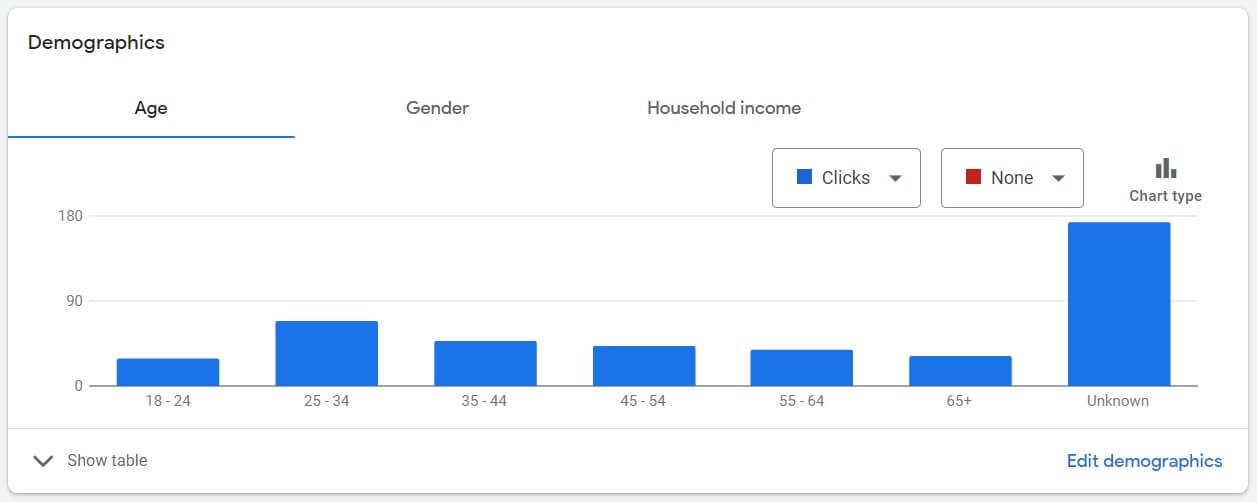
3. Competitive Advantage
In the highly competitive legal landscape, being visible where potential clients are searching is crucial. Google Ads provides a competitive advantage, allowing your firm to outshine competitors and attract more clients.
4. Adaptability
Google Ads campaigns are highly adaptable, making it easy to adjust budgets, keywords, and ad content to match the evolving needs of both your clients and your law firm.
The Benefits of Using Google Ads for Law Firms
1. Cost Control
Google Ads lets you set your budgets and bids, ensuring complete control over advertising expenses. You only pay when someone clicks on your ad, making it a cost-effective marketing tool.
2. Quick Results
Unlike some other marketing strategies, Google Ads can yield rapid results. Your ads can appear at the top of Google search results almost immediately after setup, giving your law firm a quick boost in online visibility.
3. Data-Driven Decisions
Google Ads provides comprehensive data and analytics, enabling law firms to measure the performance of their campaigns. This data-driven approach allows for continuous optimisation to maximise results.
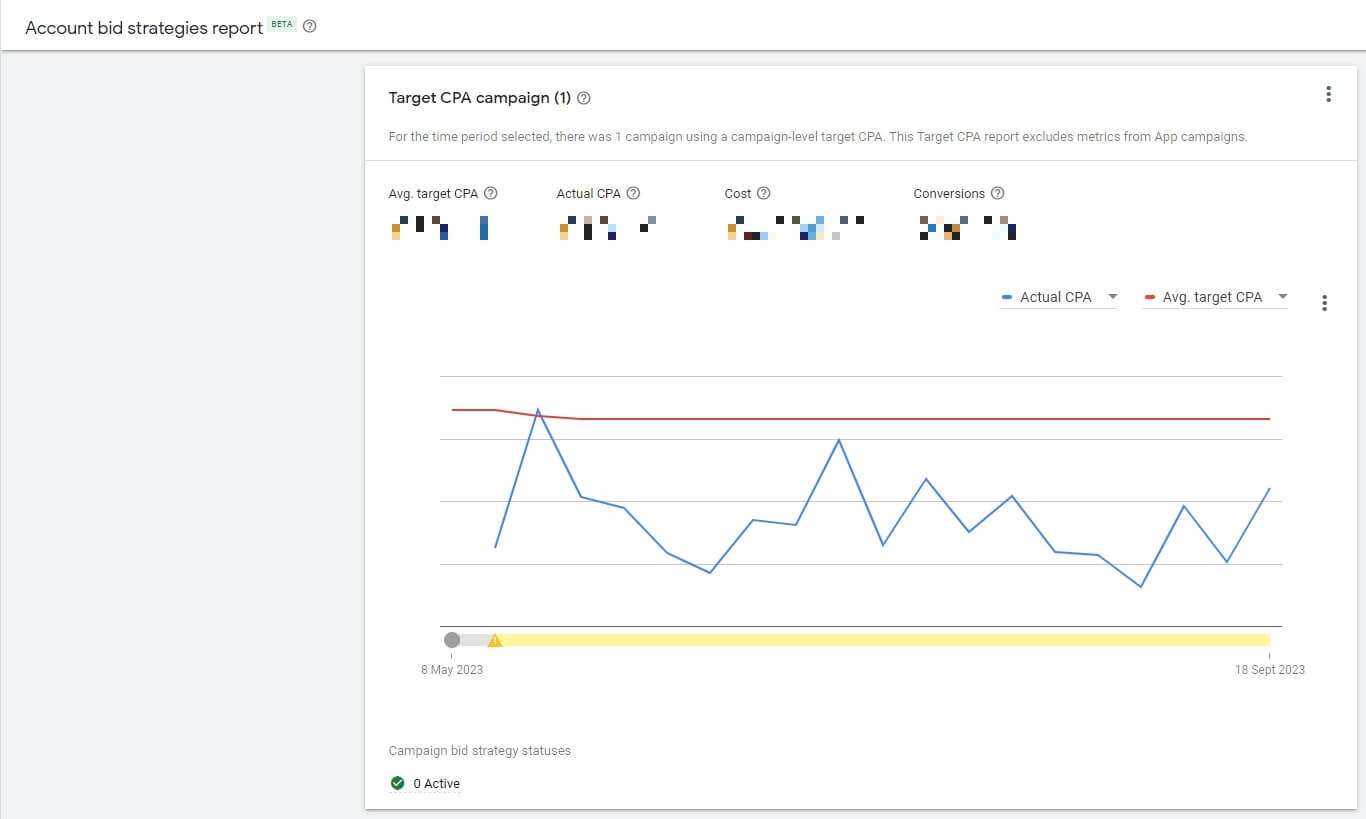
4. Geo-Targeting
For law firms serving specific geographic areas, Google Ads offers advanced geo-targeting options. This ensures that potential clients see your ads in the regions you serve.
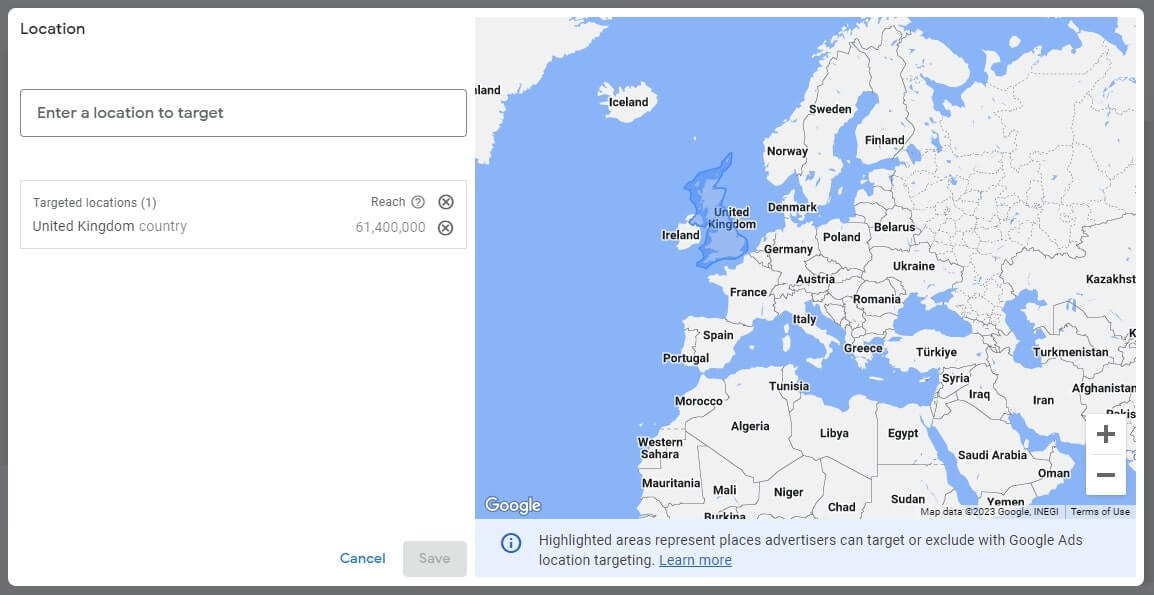
5. Enhanced Brand Awareness
Consistent visibility on Google through well-optimised ads can help establish your law firm’s brand as an authoritative figure in your practice areas.
Keyword Research for Law Firms
When seeking legal services, keywords are the words and phrases that potential clients enter into the Google search bar. Understanding and strategically selecting these keywords is fundamental for the success of your campaign. Here’s why keywords are crucial:
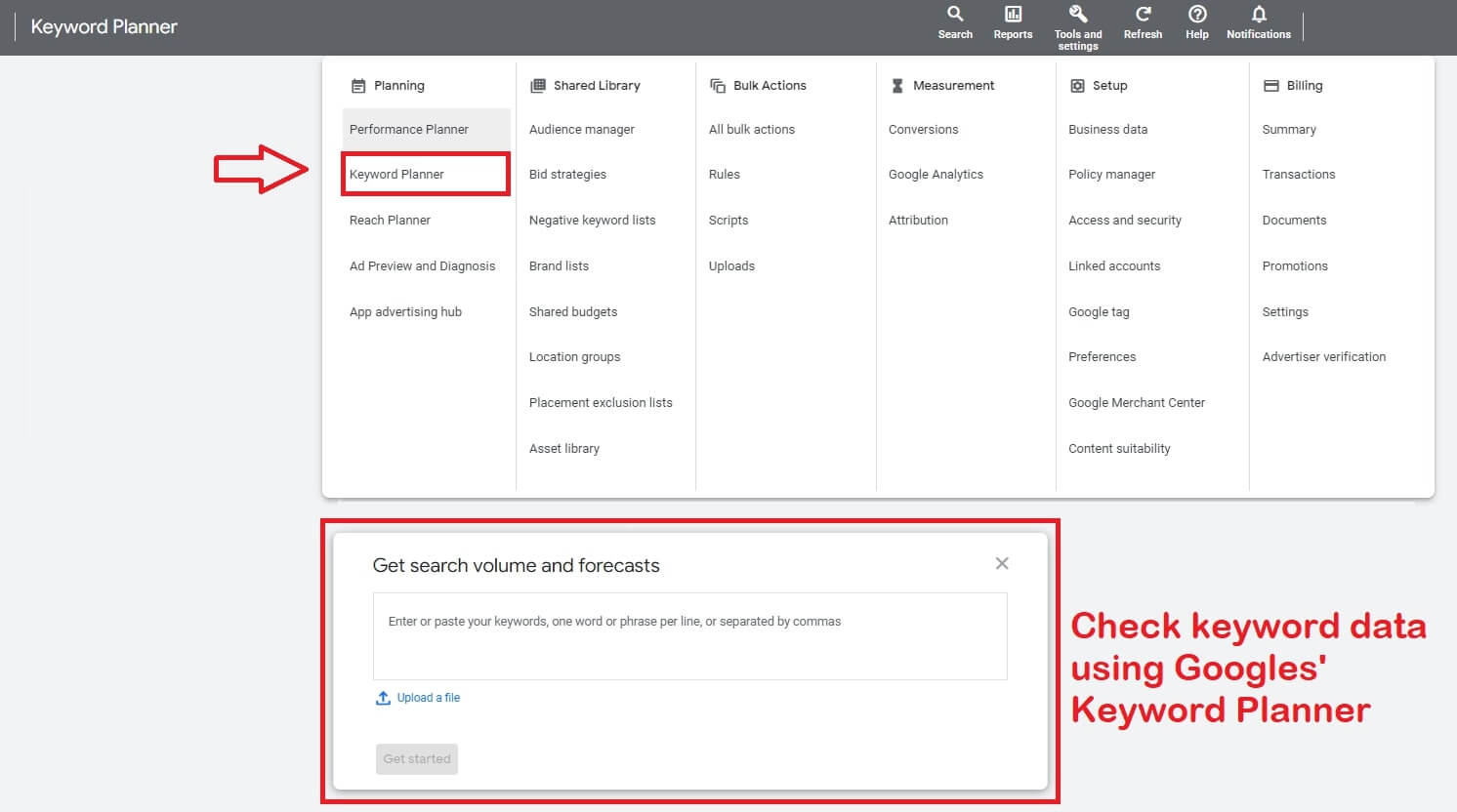
1. Relevance
Keywords can ensure that your ads will appear to users actively seeking legal services that you offer. Relevance is critical to attracting the right audience.
2. Cost Control
Properly chosen keywords help control ad spend by ensuring that your ads appear when they are most likely to convert, minimising wasted clicks and budget.
3. Quality Score
Google uses the quality and relevance of your keywords to determine your ad’s Quality Score, which can lead to lower costs.
Types of Keywords Relevant to Law Firms
Law firms operate in a multifaceted environment, so various types of keywords can be relevant. Here are the primary categories to consider:
1. Legal Services Keywords
These are the core keywords that describe the services your law firm provides, such as “divorce attorney,” “personal injury lawyer,” or “estate planning law firm.”
2. Speciality Keywords
If your law firm specialises in specific areas of law, such as “family law,” “criminal defence,” or “patent law,” it’s essential to include relevant speciality keywords.
3. Location-Based Keywords
If your firm serves specific geographic areas, location-based keywords like “London law firm” or “Northampton attorney” are vital to reaching local clients.
4. Long-Tail Keywords
These are more specific and longer keyword phrases that often indicate strong user intent, such as “child custody lawyer in Northamptonshire” or “probate attorney for will disputes.”
Best Practices for Conducting Keyword Research
1. Start with a Seed List
Start your keyword research with a seed list of terms relevant to your law firm. This can include your services, specialities, and location.
2. Expand Your List
Keyword research tools can expand your list by finding related keywords and long-tail variations. Tools such as Google Keyword Planner, SEMrush, and Ahrefs can be invaluable.
3. Assess Competition
Evaluate the competition for each keyword. Highly competitive keywords may require a higher budget, so balance your selection with budget constraints.
4. Consider User Intent
Think about what potential clients are looking for when choosing keywords. Are they in the research phase or ready to hire a lawyer? Tailor your keywords accordingly.
Tips for Using Keyword Research Tools Effectively
- Each tool can only provide a partial picture. Utilise multiple keyword research tools to cross-reference and verify your keyword choices.
- Filter keywords based on search volume, competition, and relevance. Focus on those most likely to yield results.
- Keep an eye on keyword trends. Search habits can change, so adapt your keyword list accordingly.
Building a Strong Keyword List
Creating a keyword list, organising these keywords into relevant groups, and recognising the importance of long-tail keywords for specific legal services are critical aspects of achieving online success.
Creating a Comprehensive Keyword List
1. Start with Your Services
Begin by listing the core legal services your firm provides. These are the primary services potential clients are likely to search for, such as “family law,” “criminal defence,” or “personal injury.”
2. Specialisations
If your law firm specialises in specific legal areas, ensure that you include relevant keywords, like “immigration law,” “intellectual property law,” or “workers’ compensation attorney.”
3. Location-Based Keywords
Incorporate location-based keywords for law firms serving specific regions, such as “London immigration attorney” or “Northampton divorce lawyer.”
4. Long-Tail Keywords
Long-tail keywords are more specific and detailed phrases that capture niche user intent. For instance, “child custody lawyer for fathers in London” is a long-tail keyword.
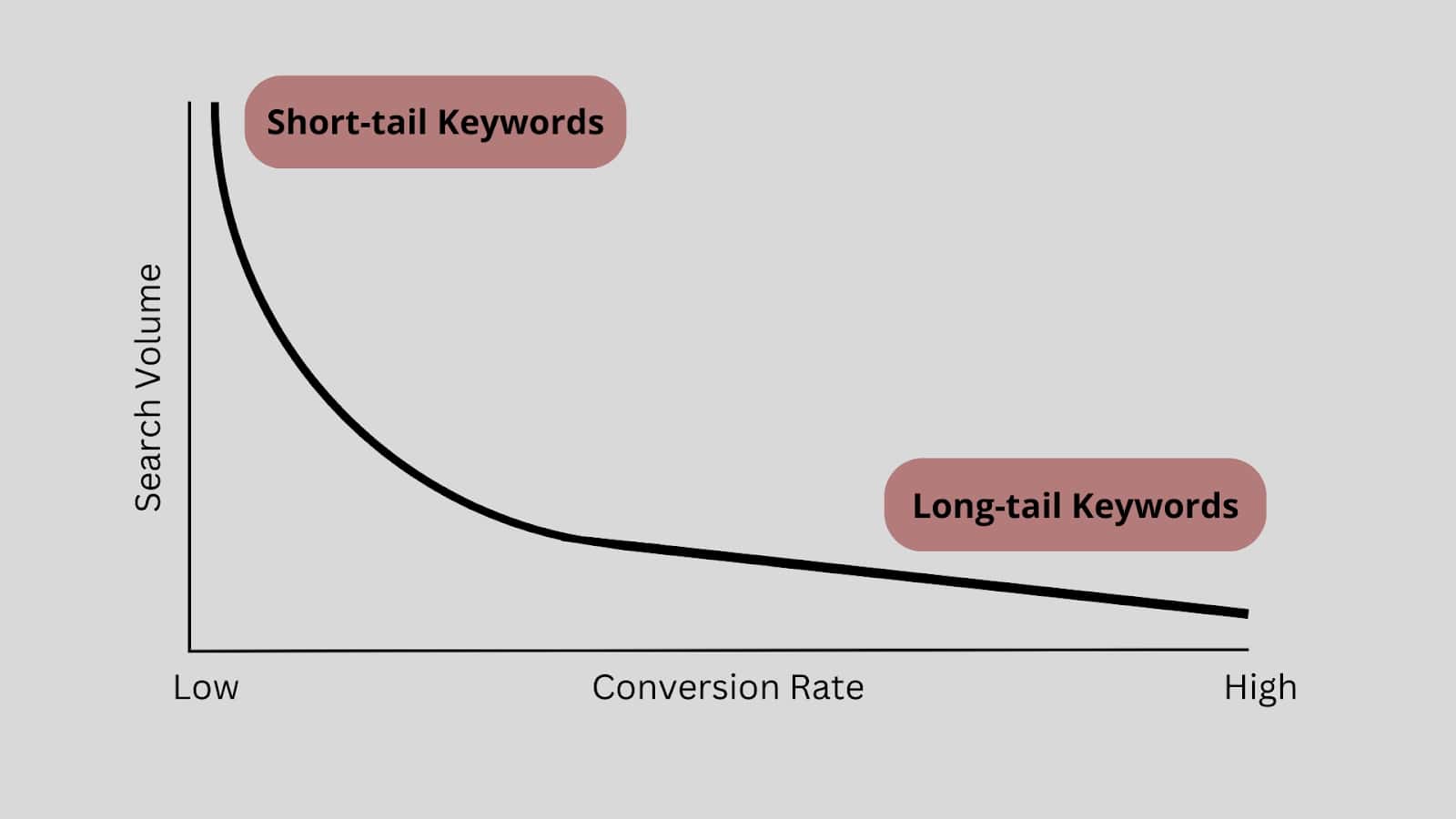
5. Consider Synonyms and Variations
People may use different terms to search for the same services. For example, “DWI lawyer” and “DUI attorney” are synonyms and should be included.
6. Competitor Research
Analyse the keywords your competitors are targeting. This can provide valuable insights and help identify gaps in your strategy.
7. Keyword Tools
Leverage keyword research tools like Google Keyword Planner, SEMrush, or Ahrefs to discover additional keywords, assess search volume, and gauge competition.
The Importance of Long-Tail Keywords for Specific Legal Services
Long-tail keywords deserve special attention in the legal realm. Here’s why:
- Long-tail keywords often reveal a higher level of user intent. For example, “estate planning attorney for will disputes” indicates a user interested in resolving will-related issues.
- Long-tail keywords typically face less competition in the bidding arena. This can result in lower costs per click and higher ad placements.
- Long-tail keywords allow for highly relevant ad copy and landing pages, catering directly to the user’s needs and increasing the likelihood of conversions.
Building a solid keyword list and organising it into ad groups are critical steps in mastering Google Ads for your law firm. Long-tail keywords, in particular, hold immense potential for reaching a highly targeted audience.
Bidding Strategies
Mastering bidding strategies is balancing your budget, competition, and campaign objectives to ensure your law firm’s ads reach the right audience effectively.
Bidding Options: Manual vs Automated
Manual Bidding:
This approach provides complete control over the bids for your keywords. You set maximum bid limits, and the bid amount remains fixed unless manually adjusted. Manual bidding is advantageous for law firms with a specific budget allocation and a desire for precise control.
Automated Bidding:
Automated bidding, on the other hand, allows Google’s algorithms to adjust bids in real time to optimise for different campaign objectives, such as clicks, conversions, or impression share. It suits law firms seeking a more hands-off approach, relying on Google’s machine learning to maximise results.
Bidding for Competitive Legal Keywords
In the fiercely competitive legal services arena, bidding for the right keywords can be a strategic game-changer. Here are insights to consider:
1. Quality Score Matters
Google’s Quality Score is pivotal. Higher Quality Scores can lead to better ad placements and lower costs. Focus on optimising your ad copy and landing pages to improve Quality Scores.
2. Budget Allocation
Allocate your budget thoughtfully. Competitive keywords may require a larger budget to compete effectively. Ensure you balance budget allocation across campaigns and ad groups to cover a spectrum of keywords.
3. Long-Tail Keywords
Take notice of long-tail keywords. They are often less competitive and can yield highly targeted traffic at a lower cost. Leverage these strategically to maximise ROI.
Budget Allocation and Bid Adjustment for Successful Campaigns
1. Setting a Daily Budget
Start by setting a daily budget that aligns with your overall marketing goals. Ensure your budget is realistic and sustainable for the duration of your campaign.
2. Campaign-Specific Budgets
If multiple campaigns are running simultaneously (e.g., family law, criminal defence), allocate budgets to campaigns based on their importance and expected outcomes.
3. Bid Adjustment
Constantly monitor the performance of your campaigns. Use bid adjustments to fine-tune your bidding strategy. Increase bids for high-converting keywords and decrease bids for underperforming ones.
4. Geographic Bid Adjustment
If your law firm serves different geographic areas, consider using geographic bid adjustments to optimise bids based on location-specific performance.
5. Time-of-Day Bid Adjustments
If your campaign data indicates that certain times of the day perform better, consider time-of-day bid adjustments to maximise your ad visibility during peak periods.
Ad Copy and Landing Pages
Crafting compelling ad copy and optimising landing pages is the art of attracting potential clients and engaging and persuading them to take that crucial next step.
Significance of Compelling Ad Copy for Law Firms
1. First Impressions Matter
Your ad copy is the first point of contact between your law firm and potential clients. This digital handshake is the initial impression that can make or break a user’s decision.
2. Relevance and Trust
Compelling ad copy that directly aligns with the user’s search query fosters trust and confidence. It signals that your law firm can provide the solutions they seek.
3. Engagement and Conversions
Well-crafted ad copy isn’t just about clicks; it’s about conversions. It should persuade users to take action, whether making a call, filling out a form, or scheduling a consultation.
Tips on Creating Persuasive Ad Headlines and Descriptions
- Your ad headlines and descriptions should be clear, concise, and directly related to the user’s search query. Avoid ambiguity.
- Showcase what sets your law firm apart. Is it your experience, specialised services, or client testimonials? Highlight these in your ad copy.
- Incorporate relevant keywords in your ad copy to signal relevance and boost Quality Scores. But keep it simple; maintain a natural flow.
- Tell users what you want them to do. Whether it’s “Call Now,” “Schedule a Consultation,” or “Learn More,” a CTA encourages action.
- Continually test different ad variations to determine which copy performs best. Experiment with headlines, descriptions, and CTAs to refine your approach.
Importance of Optimised Landing Pages
- Landing pages must seamlessly align with the ad copy. If your ad promises specific legal services or information, your landing page should deliver exactly that.
- Landing pages should provide a clear path for users to follow, from understanding your services to contacting your law firm. Eliminate distractions and maintain focus.
- Ensure that landing pages are easy to navigate, load quickly, and are mobile-responsive. A positive user experience is vital for conversions.
- To build credibility, include trust signals such as client testimonials, case results, certifications, and awards.
Examples of High-Converting Ad Copy and Landing Pages
Example – Personal Injury Law:
Ad Headline: “Experienced Personal Injury Attorneys”
Ad Description: “Injured? We’ve Recovered Millions for Our Clients. Call for a Free Consultation!”
Landing Page: The landing page features a clear headline, a concise explanation of their expertise, and a prominent “Schedule Your Free Consultation” form. Trust badges and client testimonials are displayed for credibility.
Monitoring and Optimisation
The journey to success is more than a one-and-done affair. It’s a continuous process of monitoring and optimisation.
Continuous Campaign Monitoring
1. Dynamic Landscape
The digital advertising landscape is ever-evolving. New competitors emerge, user behaviour changes and search trends fluctuate. Continuous monitoring ensures your campaign stays aligned with the shifting terrain.
2. Budget Management
Ongoing monitoring allows you to manage your budget effectively. It helps identify areas where adjustments are needed to optimise the allocation of resources.
3. Quality Control
Campaign monitoring ensures the quality of your ads and landing pages. It helps you catch and correct any issues that may negatively impact user experience.
4. Ad Performance
Regular tracking of ad performance allows you to refine your strategy. You can pause underperforming ads and allocate resources to more successful ones.
Key Performance Indicators (KPIs) for Law Firm Campaigns
- Click-Through Rate (CTR) measures the percentage of users who click on your ads after viewing them. A high CTR indicates ad relevance and effectiveness.
- The conversion rate tracks the percentage of users who take the desired action, such as filling out a contact form or making a phone call. It’s a critical KPI for assessing campaign effectiveness.
- Google assigns a Quality Score to your ads based on their keyword relevance, expected CTR, and landing page experience. A good Quality Score can lead to better ad placements and lower costs.
- Cost Per Conversion (CPC) measures the cost of acquiring a conversion. For law firms, this is a vital KPI to assess ad spend efficiency.
- Your ad’s position on search engine results pages (SERPs) is a KPI to track. Higher positions generally yield more clicks but may be costlier. It’s essential to strike a balance between ad position and ROI.
Compliance and Ethical Considerations
For law firms delving into digital advertising, navigating the landscape requires a keen understanding of the unique compliance challenges that legal advertising entails.
Unique Compliance Challenges for Legal Advertising
1. Unauthorised Practice of Law
Your legal advertising must be careful not to imply or suggest the creation of an attorney-client relationship before one exists. Overly aggressive or misleading language can lead to allegations of the unauthorised practice of law.
2. Misleading Statements
Your ads must avoid false or misleading statements. Any claims about results, expertise, or qualifications must be truthful and verifiable.
3. Confidentiality and Privilege
Do not disclose confidential or privileged information in advertisements. The duty of confidentiality and attorney-client privilege remains even in advertising.
Guidance on Adhering to Legal Ethics Rules
1. Compliance with State Regulations
Legal advertising rules vary by jurisdiction. Ensure that your campaigns comply with the advertising rules and regulations of the state or states where you practise. This may involve different rules on content, disclaimers, and language.
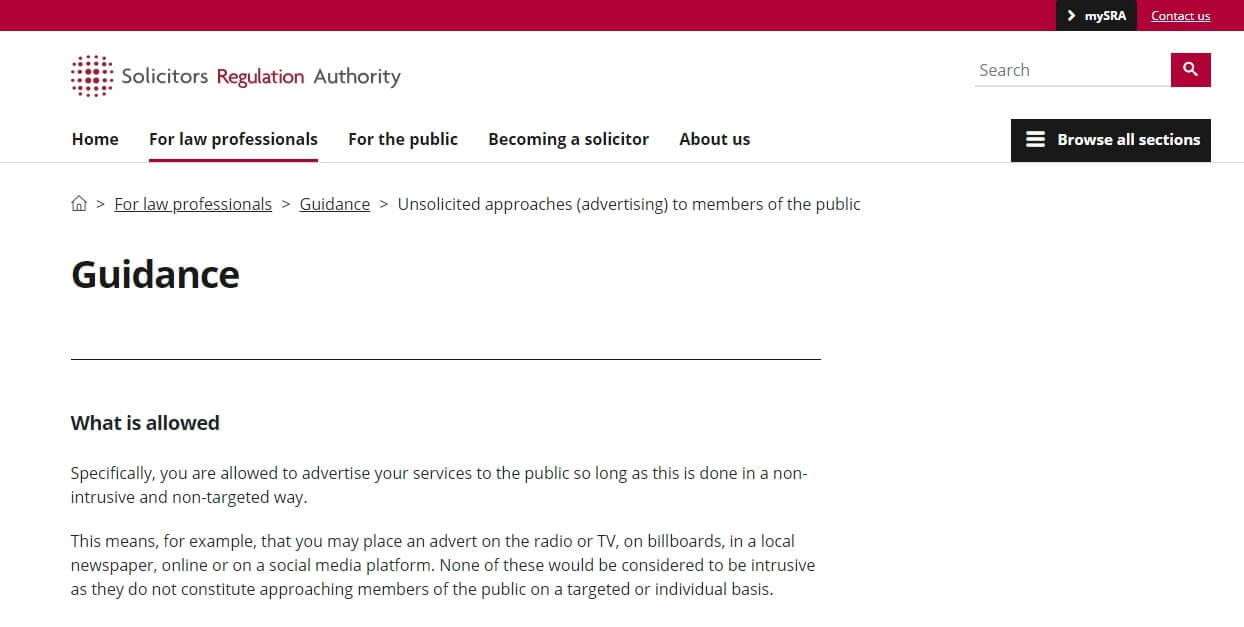
2. Transparent Identification
Ads must identify the law firm, attorney, or attorneys responsible for the content. Transparency is crucial in preventing potential ethical violations.
3. Avoid Guarantees
Do not make guarantees about case outcomes. Instead, use language that emphasises dedication, experience, and a commitment to clients’ interests.
4. Client Testimonials
Including client testimonials, ensure they are genuine and accurately represent the client’s experience. It’s advisable to obtain clients’ written consent to use their testimonials.
Tips for Avoiding Common Pitfalls and Violations
1. Review Advertising Materials
Before publishing any ad, ensure it complies with all relevant legal advertising rules and ethical guidelines. A thorough review process is essential.
2. Continuous Education
Stay updated on changes in legal advertising rules and regulations. Continuing education and involvement in legal associations can help you remain informed.
3. Monitoring and Auditing
Implement a system for monitoring your ads and campaigns. Regularly audit your advertising materials to ensure ongoing compliance.
4. Professional Oversight
Some law firms find it beneficial to have a designated individual or team overseeing advertising and ensuring compliance with legal ethics rules.
5. Adapt to Feedback
Be open to feedback from clients, peers, or regulators. If someone raises concerns about your advertising, address them promptly and professionally.
Strategies for Tracking Conversions, ROI, and Other Relevant Metrics
1. Set Clear Goals
Define your campaign goals and the actions you want potential clients to take. This could include inquiries, consultations, or specific legal services sought.
2. Implement Conversion Tracking
Set up conversion tracking within your Google Ads account. This lets you directly measure users’ actions after clicking on your ads.
3. Track Offline Conversions
Not all conversions occur online. Implement tools or processes to track offline conversions from online advertising efforts, such as phone calls or in-person appointments.
4. Analyse Cost Per Conversion
Calculate your cost per conversion (CPC) to determine the efficiency of your ad spend. Lowering CPC while maintaining conversion rates is often a key goal.
5. Determine Return on Investment (ROI)
Understand the financial impact of your advertising efforts. Compare the revenue from clients acquired through Google Ads with your ad spend.
6. Use Google Analytics
Integrate Google Analytics with your Google Ads account to gain deeper insights into user behaviour on your website. This can provide valuable data on user paths and interactions.
7. Periodic Reporting
Regularly review your campaign data and metrics. Create reports that highlight key performance indicators (KPIs) and trends. This informs strategic decisions and optimizations.
8. Competitive Analysis
Compare your performance with that of competitors in the legal field. Understanding the competitive landscape can provide insights for improving your campaign.
The success of Google Ads campaigns is an intricate yet essential process. It involves tracking conversions, analysing ROI, and assessing various metrics. Implement tracking tools and regularly review performance to ensure your online advertising strategies are data-driven and results-oriented.
Conclusion
Google Ads is a powerful tool that can open doors of opportunity for law firms, solicitors, and lawyers seeking to expand their online presence and connect with potential clients.
At Kinetic Traffic, we understand the unique challenges and opportunities that legal advertising presents. Our dedicated team of experts can help your law firm harness the full potential of Google Ads. We offer tailored strategies and solutions designed to align with your legal practice’s specific goals and needs.
Contact us today to learn how Kinetic Traffic can be your trusted ally in mastering Google Ads for your law firm’s online success.
Lead your law firm towards the best results.
Get in touch with our team and let’s talk about your marketing needs.










